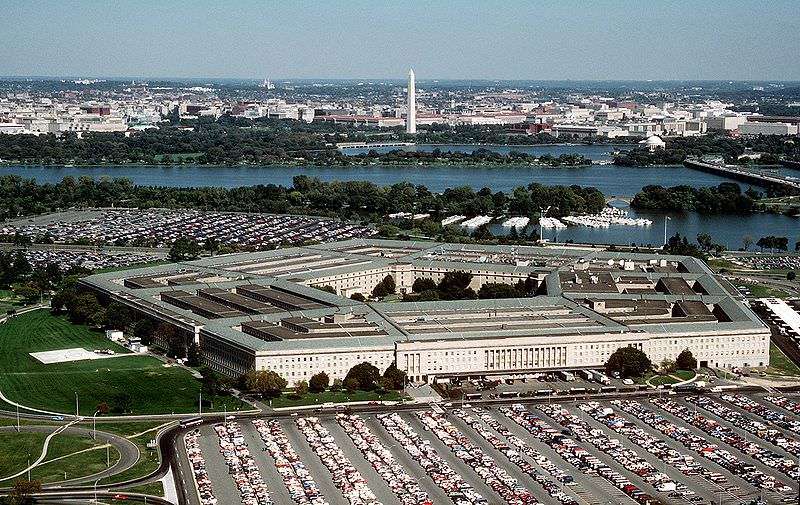Cuts to a Huge Defense Budget Are Not a Threat to National Security and Should Be Made

Obama has spoken out against impending cuts to the defense budget, saying that our national defense would be put at risk if the upcoming sequester is not avoided. The same sentiment has also been expressed by outgoing defense secretary Leon Panetta, who said that defense cuts are the greatest risk to our national security.
As Reason columnist and Mercatus Center analyst Veronique de Rugy has pointed out, the planned cuts to the defense budget would not put national security at risk.
It is always worth putting our defense budget in perspective when it comes to defense cuts.
The Washington Post has a good piece on our defense budget, and two graphs featured in the article are especially worth pointing out in the context of sequestration.
First, our military budget is vast and dwarfs the military budgets of larger and more populous countries. A graph from the Pete G. Peterson Foundation shows that in 2011 the U.S. military budget was larger than the military budgets of the next thirteen largest military budgets combined.
It is important to note that much of what the defense budget is spent on could be cut if the U.S. changed its foreign policy. As another graph featured in The Washington Post article shows, engaging in war happens to be expensive.
What is especially depressing is that the contemporary debates on defense spending exaggerate how deep the proposed cuts would be, as de Rugby explains:
First, independently of the debt deal, after years of fast growth the Pentagon's budget should be on the table for review and potential cuts like everything else (even if it is not the main driver of our future debt). Second, these spending reductions won't be anywhere as deep as many claim they will. The CBO projections (see Table 1.3 here, or Table 1.5 in the new CBO projections) about the impact of sequestration show that in the worst-case scenario (if all the cuts are applied to the baseline in the law), there will be initial reductions between FY 2012 and FY 2013, but that defense spending will continue to grow in nominal terms for all years after. After sequestration, the FY 2013 defense budget will be comparable to its FY 2006 level (in real terms). Adjusted for inflation, over the next ten years, the spending is projected to remain relatively constant.
It is absurd to think that the U.S. would not be able to effectively wage war or defend itself if comparatively modest cuts are made to the defense budget. What is perhaps even more absurd is the belief that such cuts would somehow put national security at risk. Our national security is put at risk when the military is rashly and needlessly used abroad, not when modest cuts to the defense budget are proposed amid a poorly performing economy.


Show Comments (118)